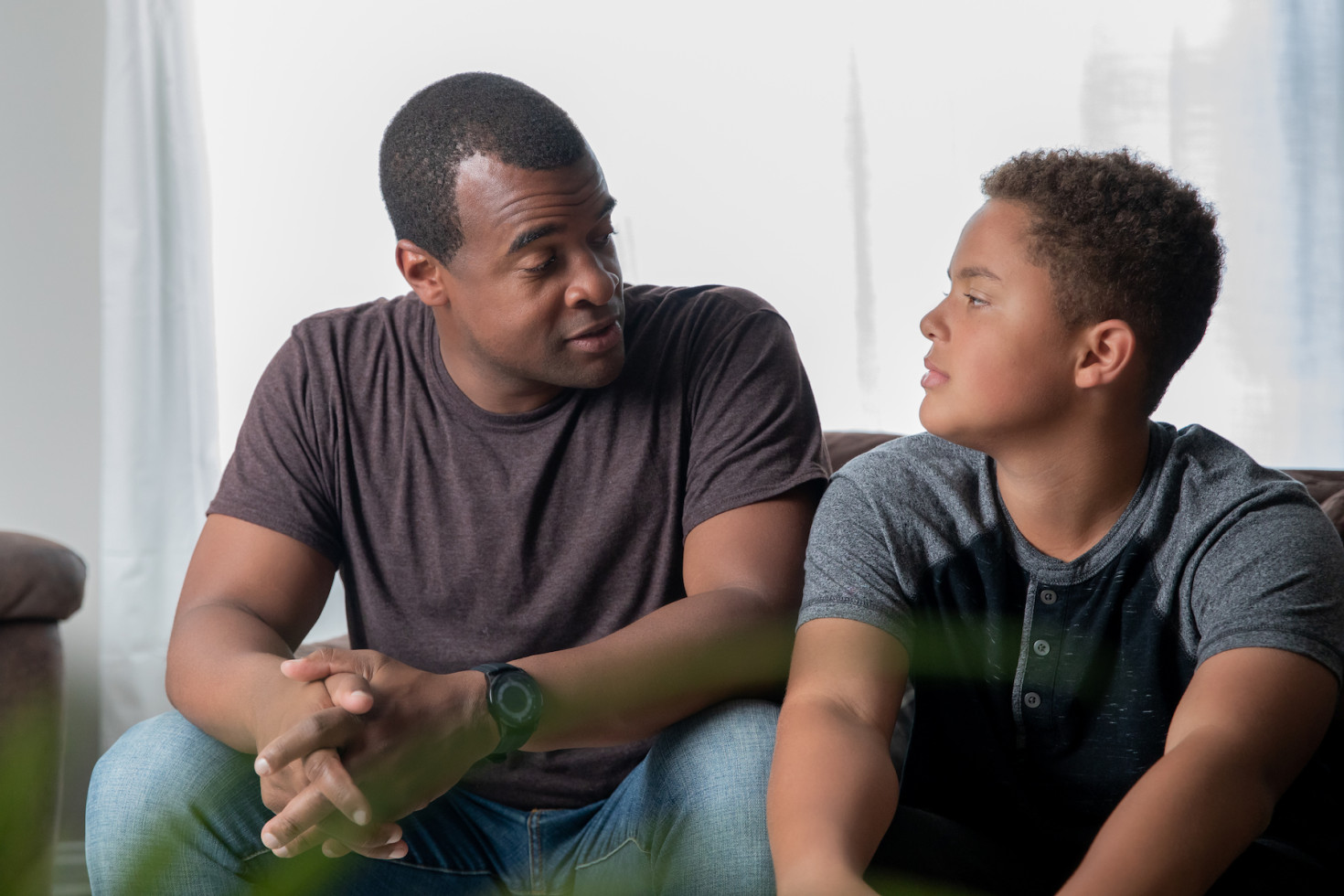How to Do It
When you realize that you’ve hurt, offended, or been unfair to your teen, how you respond matters. The following steps are meant to support you in making things right.
1. Take a moment to consider how your words or actions may have impacted your teen. Once you are ready, offer a sincere and thoughtful apology that includes at least three of the following elements:
- Express remorse (e.g., “I’m sorry”)
- Accept responsibility (e.g., “I was wrong”)
- Acknowledge the offense (e.g., “What I did wasn’t fair to you”)
- Recognize their hurt (e.g., “My actions hurt your feelings”)
- Commit to doing better (e.g., “I’ll be more mindful in the future”)
- Make amends (e.g., “I’ll make it up to you”)
- Provide an explanation (e.g., “I was stressed out and took it out on you”)
- Request forgiveness without pressure (e.g., “I hope you can forgive me”)
Using these elements helps validate your teen’s feelings, demonstrates accountability, and expresses genuine care for your relationship.
Try to avoid the following:
- Making excuses (e.g., “It’s because work was terrible today”)
- Justifying the behavior (e.g., “I was just trying to help you”)
- Blame-shifting (e.g., “It was your fault that I reacted this way”)
- Minimizing (e.g., “It’s not a big deal”)
- Pressuring for forgiveness (e.g., “Just get over it”)
2. After you’ve apologized, give your teen space to reflect on their feelings, and invite them to share with you when they are ready. Listen to them without interrupting and thank them for opening up to you.
3. Finally, remember that words matter, but so do actions. Show that your apology was sincere by making a genuine effort to change the behavior that you addressed.
Here’s an example apology: “I’m sorry for yelling at you earlier. What I did was wrong, and I know that I hurt you. It was my fault—I reacted too quickly without pausing to calm down first. I’ll work on managing my stress better so this doesn’t happen again. How can I make this right? I hope you can forgive me, and understand if you need time.”
Why You Should Try It
Misunderstandings, disagreements, and conflicts with our teenagers are a natural part of family life. In the heat of the moment, we might say or do things that unintentionally hurt our teen’s feelings. While these situations can be challenging, they also offer a chance to repair and even strengthen our relationship—depending on how we choose to respond.
Apologies play an important role in resolving conflict and fostering healing, but not all apologies have the same impact. In an effort to protect ourselves, we may sometimes offer apologies that are rushed, defensive, or incomplete. Instead of easing the tension, these kinds of apologies can actually make things worse, leaving our teens feeling more hurt and misunderstood.
Research shows that sincere apologies—those that include key elements like accepting responsibility, expressing empathy, and showing care for the relationship—are particularly effective at repairing trust and restoring teens’ sense of autonomy, self-worth, and connection. When teens feel these emotional needs are met, they are more likely to show kindness toward others, and experience fewer emotional and behavioral difficulties.
Why It Works
According to self-determination theory, autonomy, a sense of competence, and connection are basic psychological needs that are central to well-being. Need-supportive apologies work because they help repair more than just the surface of a conflict—they tend to the emotional core of your teen’s experience and restore their psychological needs that may have been undermined during the conflict. By acknowledging their feelings, expressing genuine care, and taking responsibility, you help rebuild their sense of being respected and connected to you.
Beyond the immediate situation, these kinds of apologies can also serve as powerful teaching moments. When we model perspective taking, accountability, and humility, our teens learn to bring these values into their own relationships—with others and with us—deepening their sense of connection.
Evidence That It Works
Robichaud, J.-M., Mageau, G. A., Kil, H., McLaughlin, C., Comeau, N., & Schumann, K. (2025). Parental apologies as a potential determinant of adolescents' basic psychological needs satisfaction and frustration. Journal of Experimental Child Psychology, 254, 106204.
In studies involving 347 Canadian adolescents (mostly high schoolers, mostly of European descent), researchers asked teens about their parents’ general apology habits, specific incidents when their parents apologized, and hypothetical scenarios involving different types of apologies.
In all these cases, parental apologies that included more “need-supportive” elements—such as expressing genuine remorse—were more likely to fulfill teens’ needs to feel autonomous, valued, and connected. When teens felt like these needs were met, they also reported fewer emotional and behavior problems and were more likely to show more kindness and generosity toward their friends. The research also found that defensive apologies (i.e., blame-shifting) were just as damaging to teens’ need fulfillment as no apology at all.
Sources
Jean-Michel Robichaud, Ph.D., Université de Moncton






Comments
and Reviews
The Greater Good Toolkit
Made in collaboration with Holstee, this tookit includes 30 science-based practices for a meaningful life.
The Greater Good Toolkit
Made in collaboration with Holstee, this tookit includes 30 science-based practices for a meaningful life.